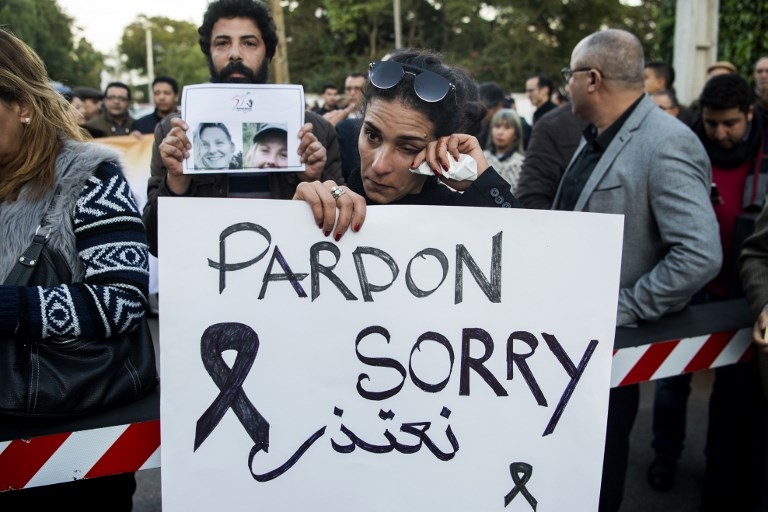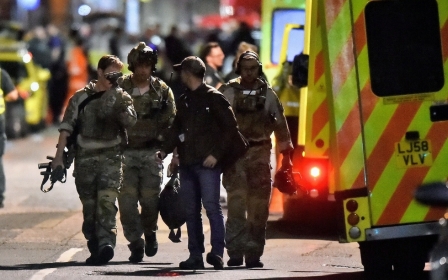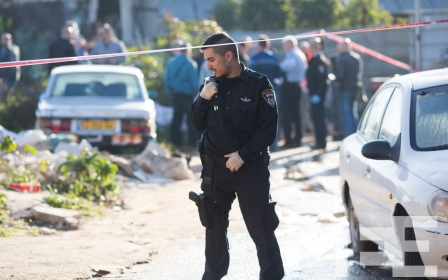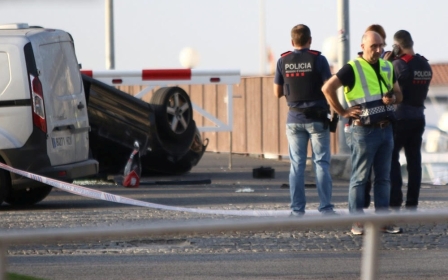Moroccan suspects in killing of Scandinavian women 'lone wolves': Official

Moroccan authorities believe four suspects in the killing of two Scandinavian women in the Atlas Mountains were acting on their own initiative, even though they had just pledged allegiance to the Islamic State (IS) group, an official said on Sunday.
Boubker Sabik, spokesman for the Moroccan security and domestic intelligence services, also said the arrest of nine more people in the case had foiled a terror plot, AFP reported.
Louisa Vesterager Jespersen, 24, from Denmark, and Maren Ueland, 28, from Norway were found dead early on Monday near the village of Imlil on a route to Toubkal, North Africa’s highest peak and a popular hiking and trekking destination.
The country, which relies heavily on income from tourism, had been spared militant attacks since 2011, when a bomb blast at a cafe in Marrakesh's famed Jamaa El Fna Square killed 17 people, mostly European tourists, Reuters said. In 2017 and 2018, Morocco dismantled 20 militant cells planning attacks.
Still, Morocco is marked by glaring social and economic inequalities, against a backdrop of high unemployment among young people.
On Saturday, crowds of Moroccans gathered to mourn the two Scandinavian hikers. Hundreds of people paid tribute to them outside the embassies of their homelands in Rabat.
The Danish and Norwegian ambassadors to Morocco thanked the public and authorities in the country for their support and messages of condolence.
Sabik said on the state 2M TV channel that the four suspects, aged between 25 and 33 years, had headed to the Imlil area intent on committing a crime but without selecting their target in advance.
They had pledged allegiance to IS in a video made on the Friday before the bodies were found, but without agreeing to this in advance with any foreign entity.
Sabik described the four as "lone wolves". "The crime was not coordinated with Islamic State," he said. "Lone wolves do not need permission from their leader," he added, without explaining how the authorities had come to their conclusions.
One of them was arrested in 2013 as part of a crackdown on individuals who wanted to join militants abroad, he said, adding that this suspect had radicalised the other three.
He dismissed reports that one was a returning foreign fighter from the Middle East. All four, who originated from the outskirts of Marrakech, had only informal jobs and had low levels of education, he added.
Referring to the nine other suspects detained on Friday in various Moroccan cities, he said their arrests "spared Morocco a terrorist plot".
Electronic devices, unauthorised hunting rifles, knives and materials that could be used for bomb-making were found in the course of those raids.
Sabik gave no details of this suspected plot but said Morocco is stepping up efforts to counter security threats posed by the return of IS militants from Syria and Iraq.
So far 242 out of 1,669 Moroccans who joined the militant group had been arrested, he said. Some fighters were using false passports and trying to hide among refugees heading for Europe as the militants suffered setbacks in the Middle East.
New MEE newsletter: Jerusalem Dispatch
Sign up to get the latest insights and analysis on Israel-Palestine, alongside Turkey Unpacked and other MEE newsletters
Middle East Eye delivers independent and unrivalled coverage and analysis of the Middle East, North Africa and beyond. To learn more about republishing this content and the associated fees, please fill out this form. More about MEE can be found here.




